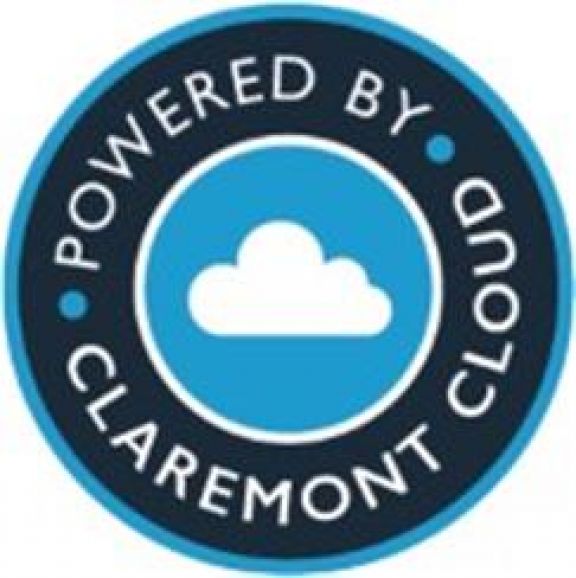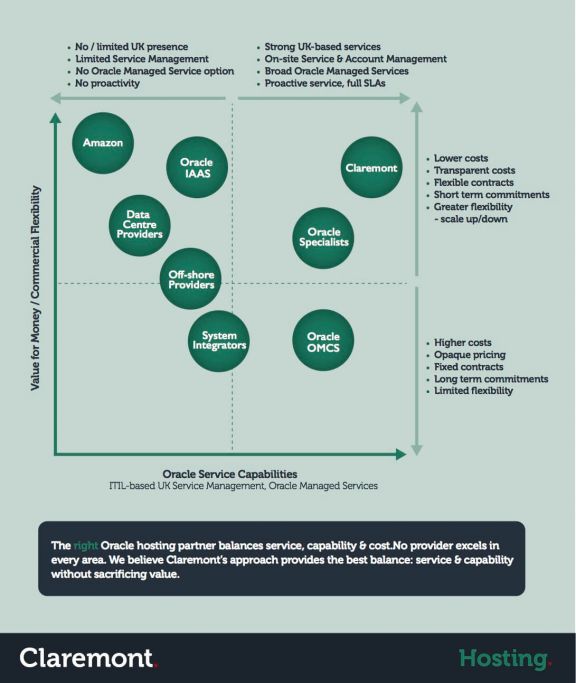Since this article was first published in late 2016, Cloud adoption has increased but so have the challenges and potential costs of hosting Oracle in a Cloud. It’s time to look at this again because your choice of Cloud affects Oracle’s support and licensing terms. Amazon, Microsoft Azure and VMWare-powered Clouds are amongst those affected. Even Oracle IaaS can negatively impact your licensing…
We often speak of the Cloud, as if it is a single, homogeneous “entity” providing all sorts of computing resources to the public and, increasingly, businesses. While we know there are many Clouds, it is convenient to think of Cloud as an abstract, homogeneous concept. This allows us to focus on the business challenges that drive us to a Cloud and the services being offered by the Cloud provider. That’s generally a good thing: moving the conversation from the technical minutiae of hosting to Cloud services (with the emphasis on service) is in everyone’s interests.
However, at some stage anyone considering hosting business applications on a public Cloud must ask some fundamental questions as part of their due diligence. Concerns around where data will be stored and what data security exists are commonplace. But anyone hosting Oracle software in a Cloud should ask additional questions, yet these are often overlooked.
Most Oracle software is licensed by processor (or processor core) and hence the number of licenses required is determined by the number of processors running the software. Even when licensed by named user, the minimum number of licenses required is usually affected by the number of processors. This becomes more complicated in a Cloud, or indeed any virtualized environment, because Oracle hasn’t applied its standard licensing rules to the virtual CPUs (“vCPU”) provided by Clouds: sometimes Oracle still requires the underlying physical processors, i.e. that run the Cloud, to be licensed while in other cases special Cloud rules apply.
By default, Oracle requires customers to license all physical CPUs/cores on the server(s) running your virtual servers in the Cloud. That will almost certainly be more than the number of vCPUs you are using and could be a big number, very big. No-one likes to pay for things they’re not using but that’s exactly what this rules could mean and the cost of running Oracle in a Cloud becomes unacceptable.
Only if the Cloud provider adheres to Oracle’s Hard Partitioning rules or is an “Authorized Cloud Environment” (“ACE”) can you license Oracle software based on the number of vCPUs provided by your Cloud servers.
And there’s the catch. Most Cloud and virtualization platforms don’t Hard Partition and ACEs only include Amazon and Azure. For example, no Cloud using VMWare can Hard Partition because Oracle specifically states that VMWare doesn’t Hard Partition. In fact, Oracle only certifies a handful of platforms as Hard Partitioning. Even their own Oracle VM platform must be configured according to certain rules to achieve this certification.
This issue has been known about for some time but Oracle is now exercising this restriction as part of its audit work. Mars fell foul of this and was hit with a claim by Oracle conservatively estimated at $100m; the two companies eventually settled out of court.
Lesson One
If not using an Authorized Cloud Environment, check your Cloud provider uses Hard Partitioning as specified by Oracle. If they don’t then walk away.
While the lack of Hard Partitioning in Clouds is a significant problem and Oracle only categorizes two providers as Authorized Cloud Environments, many organisations won’t be affected by this issue. Why? Because, according to Synergy Research Group, the two ACEs control 50% of the Cloud market. Thus, many organisations are considering or already hosting on Amazon’s or Microsoft’s Clouds and are subject to Oracle’s ACE rules.
But there’s a catch here too because there are two ways in which these rules are more restrictive than Oracle’s normal licensing.
First, more Oracle licenses are required to host in an ACE than elsewhere. In most hosting scenarios, Oracle requires customers to purchase an Enterprise database processor license for every two processor cores. But hosting in an ACE requires an Oracle processor license for every vCPU.
The situation’s worse for Standard 2 databases. They are normally licensed by CPU and on a well-designed Hard Partitioned platform, multiple cores from a single physical CPU can be allocated to a virtual machine such that only one Standard 2 license is required. This is what we do for Claremont Cloud customers. However, in an ACE Cloud a Standard 2 license must be purchased for every 4 virtual cores.
Your cost of Oracle Enterprise or Standard database licensing may double, or worse, by hosting in an ACE Cloud.
So far we’ve only mentioned ACE hosting but the Standard Edition rule also affects users of Oracle’s own IaaS hosting. On Oracle IaaS a Standard 2 license must be purchased for every 8 virtual cores. That is more attractive than the ACE licensing but licensing Standard 2 on Oracle IaaS is still at least double the cost of hosting on physical servers or a Hard Partitioned Cloud.
The second issue relates to the maximum number of ACE vCPUs that may be used with Oracle software. For example, Oracle’s Standard Edition 2 database may normally be licensed on up to 2 CPUs with an unlimited number of CPU cores (although the database will only simultaneously use 16 threads) but Oracle states a Standard 2 database “may only be licensed on Authorized Cloud Environment instances up to 8 virtual cores”. No such restriction exists with other hosting options where you can take advantage of the high number of cores available on today’s CPUs. If your Standard 2 database(s) need more than 8 vCPUs then, according to Oracle’s rules, you shouldn’t host on Amazon or Azure.
These rules mean customers require 2 licenses to run Oracle Standard Edition 2 on 8 vCPUs at Amazon EC2 or Azure, whereas only 1 license may be required to benefit from 16 threads elsewhere. Given that Oracle licenses are generally a bigger investment than the cost of commodity Cloud hosting, it could be a mistake to use a Cloud that both limits Oracle’s performance, because the number of permitted CPU cores is limited, and increases licensing costs.
Lesson Two
Before choosing an Authorized Cloud Environment or, with Standard databases, an ACE or Oracle IaaS, make sure the licensing rules won’t impose a choice between non-compliance, purchasing additional Oracle licenses or throttling the performance of your Oracle system.

Having ensured your Oracle systems comply with Oracle’s licensing terms, you next need to check the choice of Cloud won’t affect your system’s Oracle support or functionality.
Let’s take that second point first. I imagine most people assume software will work on a Cloud in the same way as on any other hosting, but that’s not the case. Clouds do not always deliver the same infrastructure that can be achieved with dedicated private hosting and thus some software won’t work.
For example, Oracle RAC and Oracle Multitenant in Oracle 12C are not supported by Oracle on Amazon (Ref. “Oracle Database Support for Amazon AWS EC2”, Oracle MOS Doc ID 2174134.1). Custom workarounds may be found on the Internet but these are unlikely to function without issues, e.g. poor performance, and aren’t supported by Oracle. If you’re using RAC or Multitenant then it’s likely you have challenging business requirements and the use of such workarounds will be unacceptable.
There is another issue that affects all Oracle’s software and while this is a subtle issue and might not be a risk for you, it must be considered. This affects VMWare, which underpins many Cloud offerings. Although Oracle supports their products on VMWare, they are not certified and as such “Oracle will only provide support for issues that either are known to occur on the native OS, or can be demonstrated not to be as a result of running on VMware” (My Oracle Support Doc ID 249212.1). Oracle’s support note continues, “If the problem is determined not to be a known Oracle issue, we will refer the customer to VMware for support. When the customer can demonstrate that the issue occurs when running on the native OS, Oracle will resume support”. Similarly, if Oracle’s fix for a known issue doesn’t work then the assumption is that the problem is caused by VMWare until the “customer can demonstrate” it also occurs on the “native OS”.
Thus, Oracle Support may require you to “demonstrate” a problem’s not a VMWare issue before further support is provided. This will require time and resources (both people and IT infrastructure) to replicate the problem outside of VMWare. That can be a distraction for your business and cost time that delays the resolution of an incident. Many may decide the risk of Oracle Support requiring you to do this is outweighed by the benefits of using VMWare, but it’s vital that you understand the support terms. This is particularly true when trusting critical systems to a VMWare-powered Cloud.

Lesson Three
Understand and accept the support requirements of running of Oracle on VMWare before moving to a VMWare-based Cloud. And whatever Cloud you’re using, if you’re using more advanced Oracle functionality make sure it works on that Cloud.
Claremont’s approach to Cloud hosting for Oracle systems was to develop the Claremont Cloud. Built using Oracle VM and Oracle Linux, and configured to meet Oracle’s standards for Hard Partitioning, the Claremont Cloud avoids the licensing and support pitfalls. Furthermore, the Claremont Cloud’s pure Oracle technology stack provides a platform designed, built and tuned for running Oracle systems. In addition to the public Claremont Cloud we run private Claremont Clouds for customers and, thus, also offer hybrid solutions. These are all hosted in our UK data centres, all of which exceed the Tier III data centre benchmark and are certified compliant with key standards such as ISO-27001 for security.
Our Cloud hosting is delivered within Claremont’s proven, ITIL-based Managed Service framework. We don’t just provide raw hosting, we provide a service. This can include whatever additional services our customers require, from operating system administration and Oracle DBA support to specialist skills proactively supporting Oracle E-Business Suite.
“Unique” is an over-used and abused word. But the Claremont Cloud really is unique in delivering UK-based, Oracle VM private and public Clouds as part of flexible and high quality Managed Services. I wrote that in 2016 and it remains true today.

More Information
If you would like to know more about how to avoid the licensing and support pitfalls of hosting Oracle in a Cloud, please get in touch.

